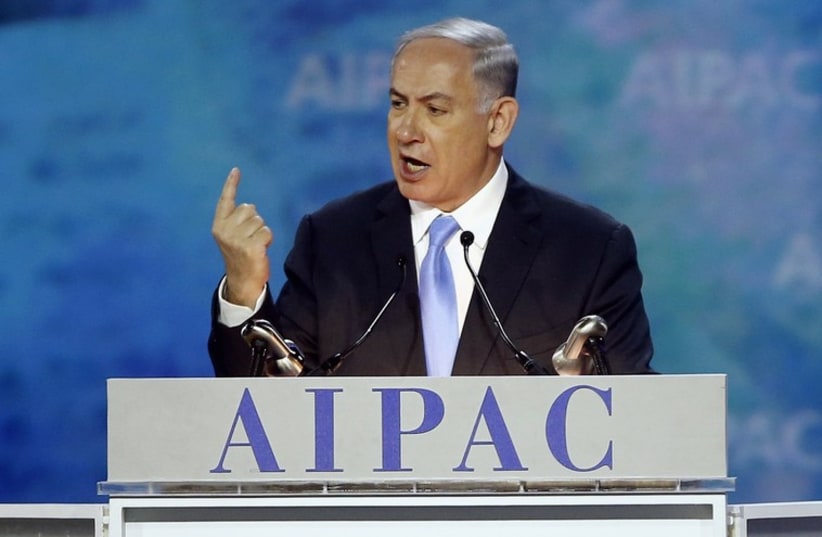See the latest opinion pieces on our page
Obama’s overreaction strongly suggests that there is much more to this episode than a violation of protocol.It is very likely that he fears what Netanyahu will say. As a gifted orator and leader of the nation most threatened by Iran’s nuclear ambitions, Netanyahu is uniquely positioned to initiate a conversation on the merits of the pending deal. For the first time, someone with “skin in the game” will make a convincing argument that Iran is not to be trusted.Commenting on the rush to reach an agreement that seems to benefit only Iran, he will state plainly that the emperor has no clothes.Adler also opposes Netanyahu’s position toward Iran on the merits. He begins by noting that there is a fatwa against Iran possessing nuclear weapons.If we truly believe that this will halt Iran’s march toward the ultimate weapon, then negotiations are unnecessary. We should allow Iran to run their centrifuges at peak capacity, secure in the knowledge that these are “good Muslims.” What folly.He also says that former Iranian president Mahmoud Ahmadinejad’s threat to “wipe Israel off the map” really meant “the bloodless and peaceful reconfiguration of Israel into a one-state solution.”Adler might want to explain this nuanced interpretation to the Iranian Republican Guard Corps who regularly march through Tehran’s streets shouting “Death to Israel.” (No doubt they mean this in the nicest possible way.) Here’s one important lesson from the Holocaust: When someone says he wants to eliminate the Jewish people, he means it.Is a likely counterstrike by the US so strong a deterrent that it makes an Iranian attack against Israel impossible? That assertion assumes that Iran is a rational player similar to the US and USSR during the Cold War. MAD (Mutually Assured Destruction) is a deterrent to nuclear conflict when both sides prefer survival over destroying their opponent. But Iran’s radical mullahs believe that martyrdom is the desired course for establishing a worldwide caliphate through the coming of the Mahdi. On that basis, a devastating US attack is welcome.Of course, this further assumes that the US actually would act militarily. Given President Obama’s recent performance, that is far from certain. Ask Iranian pro-democracy demonstrators, the Ukrainian army, Iraqi Kurds or moderate Syrian rebels how satisfied they are with the help they have received from the US. Israel’s defense rests solely with its own military.To those who say that an embargo or sanctions against Iran will never work, the answer is simple: We cannot know, because the sanctions regime was not allowed to have its full effect. The Iranians agreed to come to the table only because of sanctions. However, rather than press this advantage, Obama pushed to weaken sanctions in order to buttress his self-image as a global peace maker. Iran seems to have given nothing in exchange for this lifeline.Should Netanyahu forgo the opportunity to speak before Congress, relying on President Obama’s “record of stalwart arms and diplomatic aid?” Given Obama’s failure to recognize Israel’s past difficult concessions (a 10-month building freeze in the disputed territories; release of convicted terrorists as a goodwill gesture to the Palestinian Authority; an apology to Turkey for having had the temerity to kill armed terrorists aboard the Mavi Marmara), it is unlikely that canceling the speech would earn any points. Indeed, it would confirm the “chickens**t” epithet that some in the administration so elegantly applied to the prime minister. It would even give Obama cover to complete his ill-advised deal, precisely because Israel’s leader had not spoken out loudly when given the chance.Security cooperation between the US and Israel will continue not out of magnanimity on the part of our great benefactor in Washington, but because Congress, the Pentagon and the American people recognize that it is in their own best interest to support the only functioning democracy in the Middle East. In the meantime, with strength and courage, we will weather this crisis of confidence just as we have survived other crises with other presidents.Make no mistake: silence is not an option. I well remember my parents’ response when I asked why there was no massive outcry from the American Jewish community during the Holocaust: “Our leaders told us not to rock the boat; they were working behind the scenes.” We dare not repeat that tragic mistake.Netanyahu has no alternative but to speak on the world’s most visible stage, arguing forcefully in defense of the world’s only Jewish state. If we are not for ourselves who will be for us? And if not now, when? The author is a former US diplomat now living in Israel. He is a Fellow at the International Institute for Counter-Terrorism, a board member of CoHaV (Coalition of Hasbara Volunteers) and co-founder of The Zichron Project.
Why Netanyahu must speak
During the Holocaust, “Our leaders told us not to rock the boat; they were working behind the scenes.” We dare not repeat that tragic mistake.
